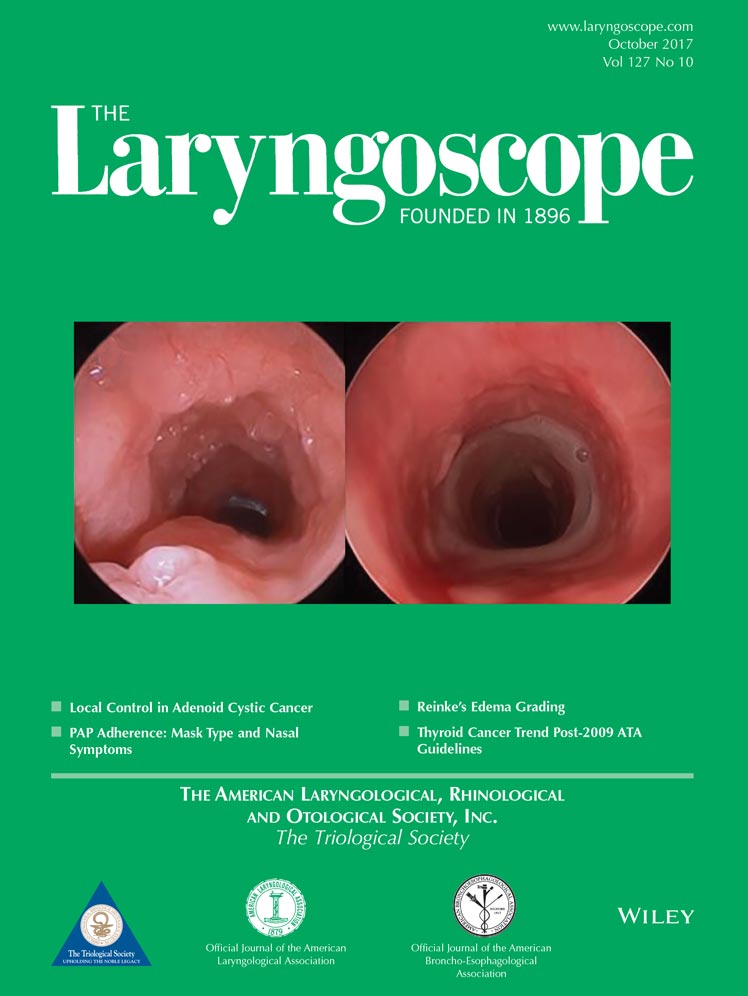Medical residents' circadian preferences across specialties
Presented as a poster at the Triological Society Combined Section Meeting, Coronado, California, U.S.A., January 22–24, 2015.
The Department of Otolaryngology–Head and Neck Surgery, Henry Ford Hospital, supplied funding for data analysis. The authors have no other funding, financial relationships, or conflicts of interest to disclose.
Abstract
Objective
Circadian preference refers to the tendency of individuals to be more alert and effective in the morning (larks) or the evening (owls). Given the rigors of medical residency training and perceived lifestyle differences among specialties, circadian preference may play a role in choice of medical specialty and subsequent job satisfaction during training. This study aimed to determine the circadian preferences of residents across specialties and correlations with specialty choice and job satisfaction.
Study Design
Single-institution, cross-sectional survey.
Methods
The Horne-Ostberg Morningness-Eveningness questionnaire, the standard to identify circadian preference, was modified to include demographic and job satisfaction variables and administered to residents at our tertiary care hospital in 2014. Independent t tests were used to correlate circadian preference and specialty choice, and Spearman's correlations were used to correlate circadian preference and job satisfaction.
Results
A total of 160 residents from postgraduate years 1 through 7 and 10 specialties responded. The mean chronotype scores from all specialties met the category of “neither” morning nor evening type. A significant difference occurred between emergency medicine residents and residents from anesthesiology (P = 0.0007), surgery (P < 0.0001), and medicine (P = 0.0005). Residents in the surgical specialties trended toward the morning chronotype, whereas emergency medicine trended toward evening chronotype. There was no significant correlation between chronotype and job satisfaction.
Conclusion
Although preliminary because of the low response rate, this study points to the potential of considering circadian preference in choice of specialty training and for designing resident on-call schedules.
Level of Evidence
NA. Laryngoscope, 127:2236–2238, 2017




